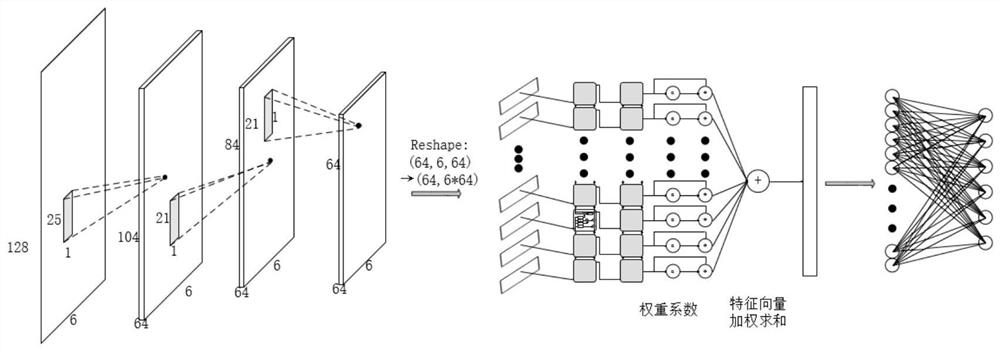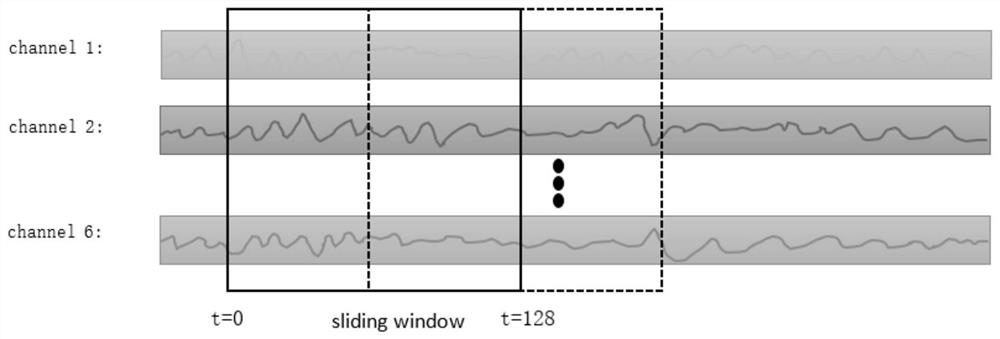A pedestrian identification method based on mobile phone inertial sensor
An inertial sensor and identity recognition technology, applied in the field of deep neural network, can solve problems such as ineffective data mining, low recognition effect, large data noise, etc., and achieve fast calculation speed, not easy to disguise, and small data volume.
- Summary
- Abstract
- Description
- Claims
- Application Information
AI Technical Summary
Problems solved by technology
Method used
Image
Examples
Embodiment Construction
[0026] The technical solutions of the present invention will be further described below with reference to the accompanying drawings and embodiments.
[0027] The technical core of the present invention is a deep neural network model, such as figure 1 As shown, the model consists of three convolutional layers, two LSTM units, an attention mechanism module, and a fully connected layer. The first convolutional layer contains 64 one-dimensional convolution kernels of length 25, the second and third convolutional layers each contain 64 one-dimensional convolution kernels of length 21, and the implicit The number of neurons in the layer is 128, and the number of neurons in the output layer of the fully connected layer is equal to the number of pedestrian identities to be recognized. After a sample of size (128,6) is input to the first convolutional layer, a feature map FM of size (104,6,64) is obtained 1 , FM 1 Input to the second convolutional layer to get a feature map FM of si...
PUM
 Login to View More
Login to View More Abstract
Description
Claims
Application Information
 Login to View More
Login to View More - R&D
- Intellectual Property
- Life Sciences
- Materials
- Tech Scout
- Unparalleled Data Quality
- Higher Quality Content
- 60% Fewer Hallucinations
Browse by: Latest US Patents, China's latest patents, Technical Efficacy Thesaurus, Application Domain, Technology Topic, Popular Technical Reports.
© 2025 PatSnap. All rights reserved.Legal|Privacy policy|Modern Slavery Act Transparency Statement|Sitemap|About US| Contact US: help@patsnap.com



